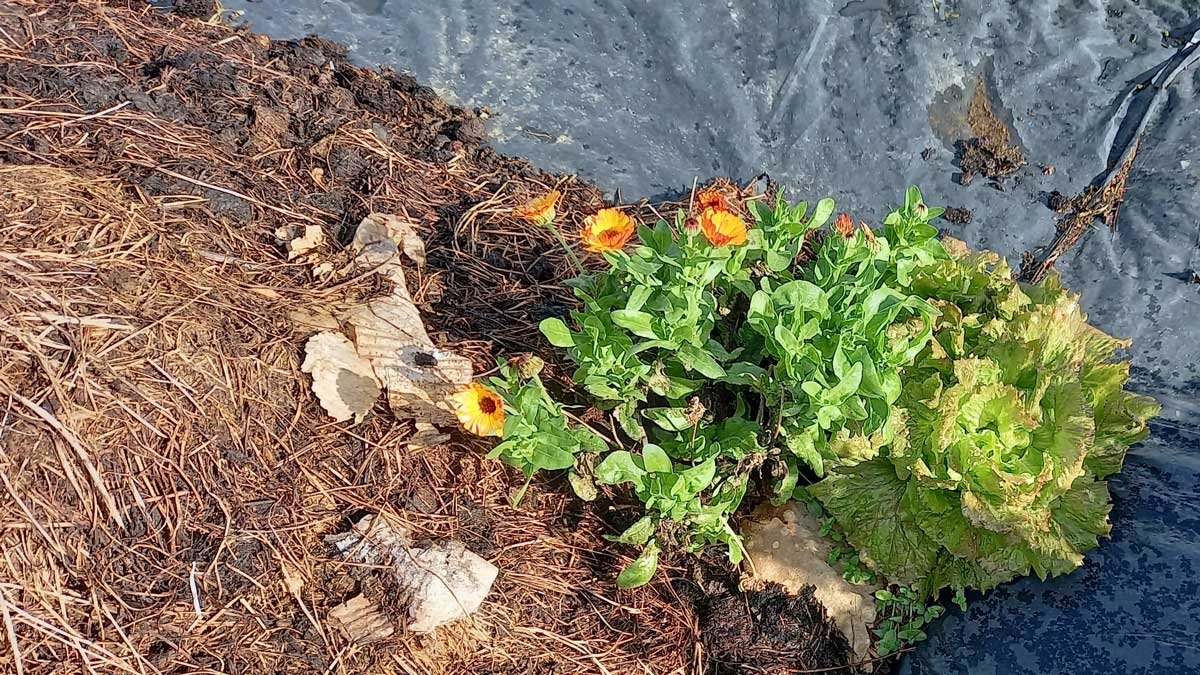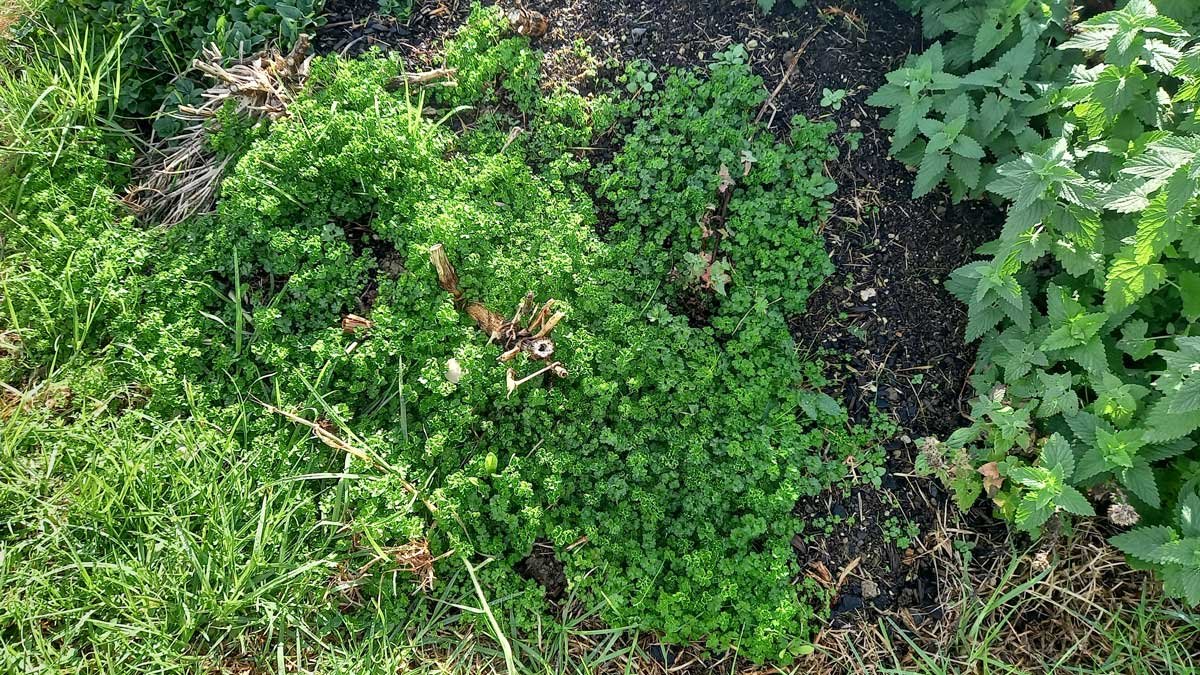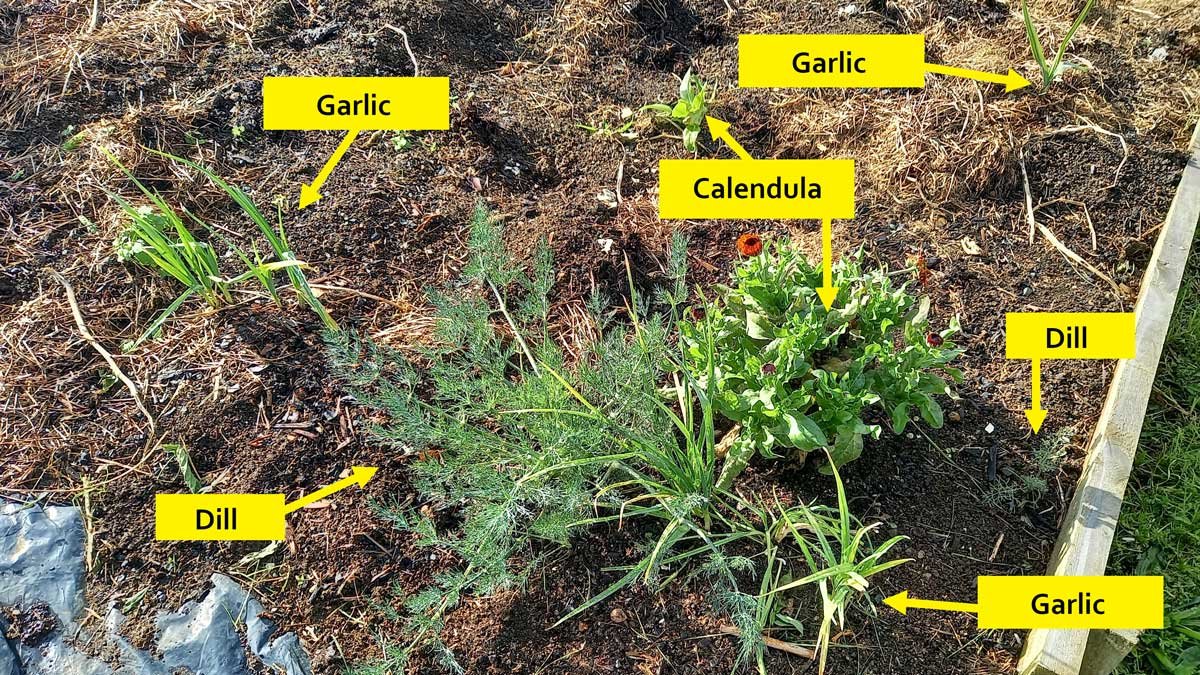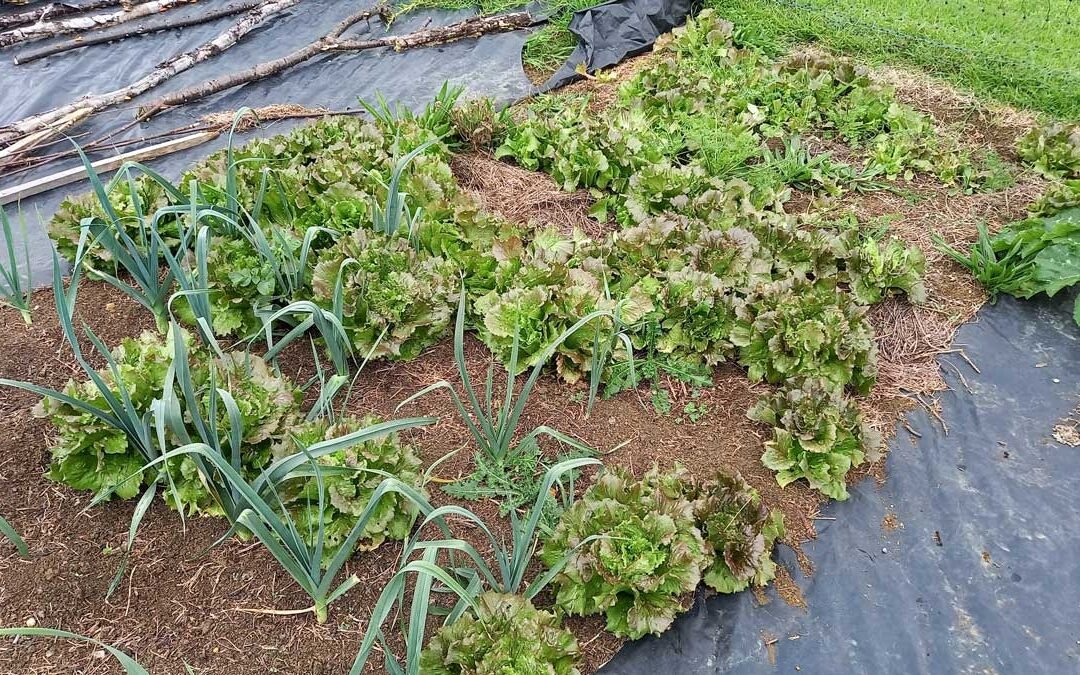I remember back when I was growing up – somewhere in my early teens – the usually well-tended and tidy family vegetable garden began looking like an absolute mess.
Things were rising up to seed. Plants that should have been biffed in the compost just marched on. Flowers – of all things – started growing in there. And there was no order: everything grew everywhere. The neat rows were gone, and an untended jungle stood in their place.
I asked mum what on earth was happening. She told me she was trying something new: letting the garden take care of itself.
With a bit of insight now, I can see she was probably learning about beneficial insects and introducing flowers to attract them. Allowing herbs like dill, parsley and fennel to go to seed provides habitat for the insects that eat the bugs that make trouble in the garden.
I assume (but unfortunately, cannot ask) that she was testing what would happen if she allowed nature to maintain her garden, rather than attempting to control nature. That sounds like her.
But at the time, I was horrified. All I had known my entire life: in my Popa’s garden; in my Grandpa’s garden; and in my parent’s garden; was clean rows, big compost piles, and lovingly-tended patches. My mother was clearly going through something. This was very strange.
I quit gardening in my teens and didn’t go back to it until my early 20’s. Since taking it up again as an adult, I’ve always been one for neat rows, and tended gardens. However, as I’ve aged I’ve also learned that imperfection is OK. And that wearing oneself out in the pursuit of perfection is not worth the energy.

Calendula and a lettuce growing beside the compost pile.
I’ve learned that nature is going to do what it’s going to do: that pests and animals will interrupt things. That I cannot control the rain, or the wind. I do not always have time to lovingly raise my food from seed – let alone actually plant them in the earth. Sometimes I forget to water stuff and it dies.
And so, I’ve begun to embrace my mother’s experiment. Over the last 6 months, I’ve just kind of let stuff go to seed. When potatoes and garlic pop up randomly, I leave them be.
When I do get around to ripping out an old plant, I spread seed around the garden beds. At this point, most of the plants I want are already there. They can reproduce quite well without my help. In fact, all I have to do is leave them alone.
There’s some base knowledge that I think is really helpful in this situation. I know how to identify a ‘good plant’ from a ‘bad plant’. I can recognise most vegetables, herbs, and flowers at an early stage, so I don’t automatically rip them out.
I’m not entirely ignoring the garden – I thin plants out and do some weeding every now and again. There are some crops I’m still working to introduce, and some that need planting in tidy rows each year to ensure harvest.
But among the things I plant, are the things nature planted. Probably the best example of this at the moment is my leek bed shown at the top of the page.
Last season I let some of our favourite lettuces go to seed. I say ‘let’, when I mean I didn’t rip them out when they went to seed once it got dry over summer. Here we are 6 months later and we now have an infinite supply of lettuce. Good thing the chooks enjoy lettuce.

Same goes for parsley. This mound of green is actually thousands of baby parsley plants (and a few catnips). It needs thinning out, and I’ll move the catnip. But I don’t need to purposely grow or plant any parsley this year.

I don’t have to introduce calendula, or Californian poppy. They are there now. Same for potatoes. Literally every garden bed contains potatoes we didn’t plant – we just forgot to harvest them. Somehow there is garlic popping up in last year’s beds – cloves and the occasional bulb we didn’t lift last season.
The garden still requires my brain, and my eyes, but it takes up a lot less time. It looks like quite a mess, but nature is messy. Mum wasn’t losing it afterall – she was gaining time and energy, while still growing food. Smart lady.


